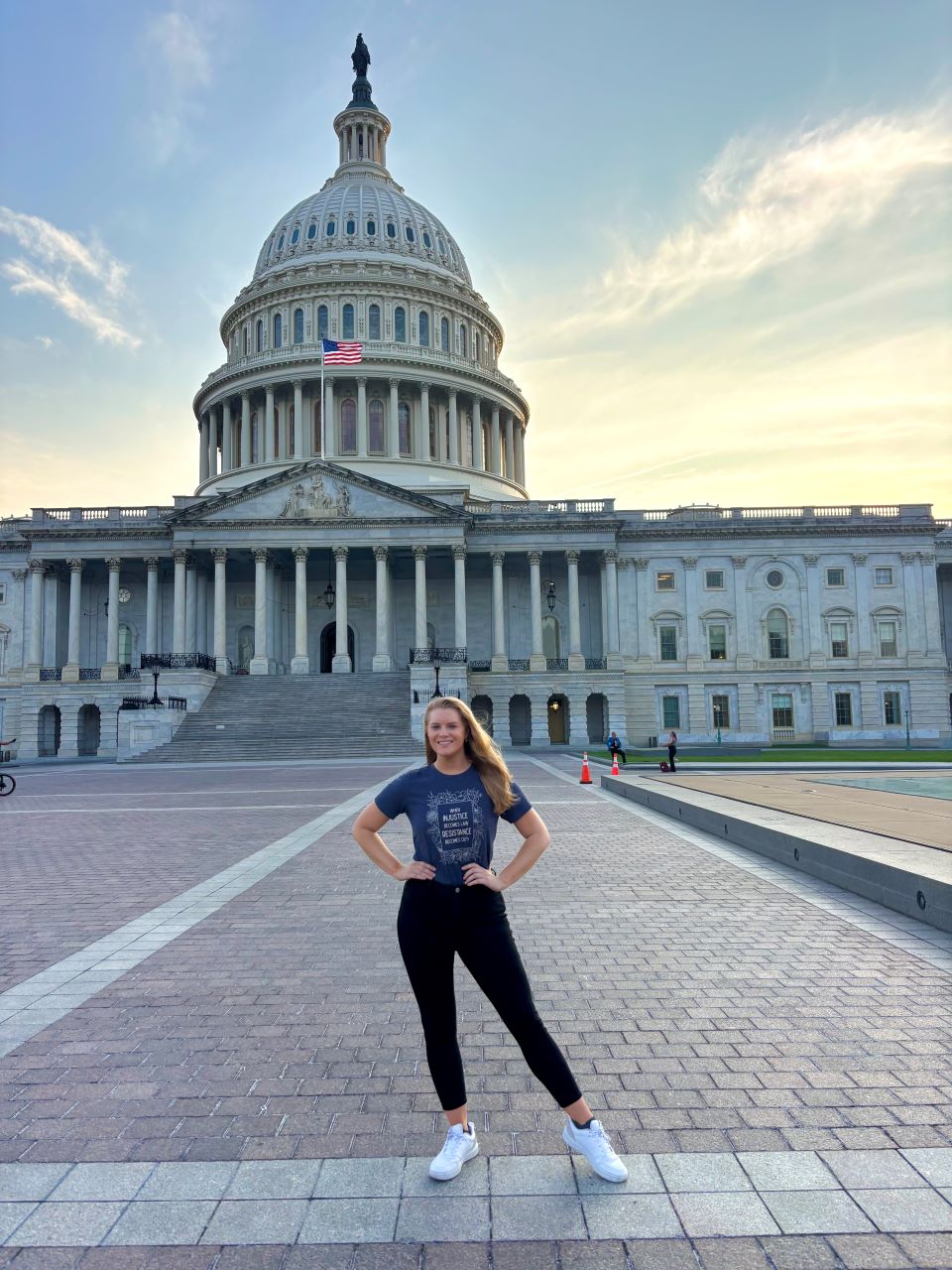Summer Experience Spotlight: Faith Whatley-Blaine at the MacArthur Justice Center
For Saint Louis University School of Law student Faith Whatley-Blaine (’26), working at the MacArthur Justice Center this summer was a reminder of how legal advocacy can bring recognition and dignity to those most often silenced. One moment that stood out was watching an attorney’s first solo court appearance, representing a transgender individual in a Missouri prison seeking a legal name change.
“She won the name change, ensuring that the Department of Corrections couldn't erase her identity any longer,” the SLU student recalled. “In a time of relentless headlines and policies targeting the LGBTQ+ community, especially transgender individuals, this moment reminded me that even small acts of resistance can create real, lasting change.”
The Roderick & Solange MacArthur Justice Center is a national nonprofit public-interest law firm founded in 1985 by the family of businessman and philanthropist J. Roderick MacArthur, a civil rights advocate who helped launch the John D. and Catherine T. MacArthur Foundation, best known for its “genius grant” fellowships. The Justice Center, which operates offices in Illinois, Louisiana, Mississippi, Missouri and Washington, D.C., fights systemic injustices in the criminal legal system through landmark litigation, Supreme Court advocacy, and reform campaigns to confront systemic injustices in the criminal legal system.
Much of Whatley-Blaine's own work focused on documenting the voices of incarcerated individuals.

“Many expressed a deep need to be seen, heard, and understood beyond their sentences,” she explained. By helping elevate these stories through legal advocacy, collaboration with social justice organizations, and engaging the media, she witnessed how storytelling and law together can drive reform. “By helping to create a platform where incarcerated individuals can speak to their lived experiences, I saw how storytelling, when paired with advocacy, can be a powerful tool for change and recognition.”
The work also revealed unexpected connections between incarceration and health law.
“What surprised me most about the work I did this summer was how deeply tied it was to health care,” Whatley-Blaine said. She supported litigation challenging the lack of air conditioning in Missouri prisons, reviewing accounts of people exposed to extreme indoor heat — often over 100 degrees — conditions especially dangerous for those with chronic illnesses, disabilities or mental health conditions. “The case underscored how the prison system’s failure to provide basic necessities like temperature control directly threatens the health and safety of incarcerated people. It revealed to me that mass incarceration is not just a legal or social issue, but a public health crisis that exacerbates existing health disparities.”
She also carried with her the memory of attending The Lost Boys Family Reunion, a play written and performed by men incarcerated at the Missouri Eastern Correctional Center.
“It completely shattered my expectations and blurred the line between theater and reality,” she said. The production, with its personal stories, music, and raw emotion, reminded her of the humanity and creativity of people behind bars.
For Whatley-Blaine, these experiences affirmed the kind of lawyer she wants to be: “People-focused. Beyond just navigating legal technicalities, I want to center the lived experiences of those affected by the law, especially individuals whose voices are often ignored or silenced.”